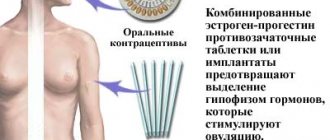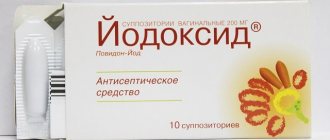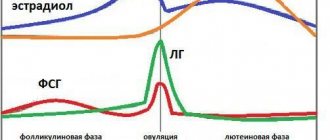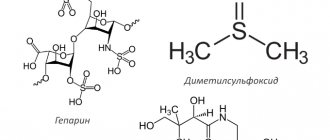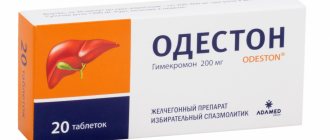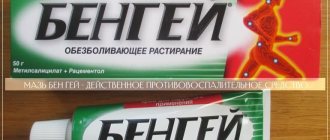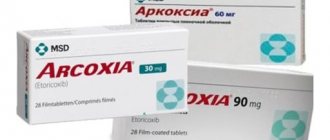Write a review
Reviews: 0
Manufacturers: Gedeon Richter (Hungary)
Active ingredients
- Not indicated. See instructions
Disease class
- Other polyneuropathies
- Iridocyclitis
- Chorioretinal inflammation
- Rheumatic fever without mention of cardiac involvement
- Acute pericarditis
- Other pericardial diseases
- Chronic adhesive pericarditis
- Gout
- Arthritis, unspecified elsewhere
- Myositis
- Rheumatism, unspecified
- Neuralgia and neuritis, unspecified
- Pain not elsewhere classified
- Salpingitis and oophoritis
- Parametritis and pelvic cellulitis, unspecified
Clinical and pharmacological group
- Not indicated. See instructions
Pharmacological action
- Anti-inflammatory
- Antipyretic
- Analgesic (non-narcotic)
Pharmacological group
- Other non-narcotic analgesics, including non-steroidal and other anti-inflammatory drugs
Pharmacological action of the drug
Reopirin belongs to non-steroidal anti-inflammatory drugs, list B. This is a combination drug whose action is aimed at pain relief and elimination of inflammation. Reopirin also has antipyretic properties.
The pharmacological action of the drug is aimed at reducing perception in pain centers, inhibiting the transmission of pain impulses and neuronal excitability in the center of thermoregulation.
The drug is well tolerated if administered three times in a dosage of 5 ml. Its high level of anti-inflammatory, antipyretic and analgesic effects makes it possible for practitioners of various profiles (therapists, neurologists, gynecologists) to use it.
Reopirin's analogues
Tempalgin
Sopharma AD, Bulgaria
The average cost of the drug in Russia is 300 rubles per package.
Tempalgin is a combined pain reliever based on the following active ingredients: metamizole sodium (analgin) and triacetonamine-4-toluenesulfonate. The drug has anti-anxiety, analgesic, antipyretic and anti-inflammatory pharmacological properties. The combined composition allows you to calm the psyche and relieve pain in the inflamed area.
Pros:
- relatively inexpensive
- prevalence on sale.
https://www.youtube.com/watch?v=ytpressen-GB
Minuses:
- there are side effects
- doesn't always help.
Pentalgin
Pharmstandard Leksredstva, Russia
The average cost is 170 rubles per package.
Pentalgin is a strong analgesic based on the narcotic component codeine, the stimulant caffeine, the analgesic analgin, the antipyretic paracetamol and the barbiturate phenobarbital. The drug cannot be purchased without a prescription, as it contains codeine. With the help of this combination, it is possible to relieve severe postoperative pain, neuralgia, fever and prolonged pain during algodismenorrhea.
Caffeine acts as an enhancer of the analgesic properties of NSAIDs and codeine, and phenobarbital calms the central nervous system, which helps to distract from the painful state. The medicine has a large list of contraindications for use; pronounced side effects are possible with prolonged and uncontrolled use.
Pros:
- fast and strong effect
- convenient release form.
Minuses:
- many side effects
- a large list of contraindications.
Analdim
JSC "Monfarm", Ukraine
The average cost of the drug in Russia is no data.
Analdim is a rectal suppository based on metamizole sodium and diphenhydramine. The drug in this combination has pronounced antipyretic properties, can be used for prolonged headaches and toothaches, neuralgia, myalgia, colic in the kidneys and liver, as well as to eliminate pain after injuries and surgical interventions. Typically, analdim is used as a substitute for a lytic mixture for severe hyperthermia, if paracetamol and similar drugs do not cope.
Pros:
- performance
- good tolerance.
Minuses:
- in Russia you cannot buy a specific drug; you have to use generics based on the same active ingredients
- only one release form.
There are no complete analogues of Reopirin in terms of active ingredients. Butadione (active ingredient phenylbutazone) is an incomplete analogue of Reopirin.
To begin with, it should be said that, despite its high effectiveness, the medicine has been withdrawn from sale in Russia. Exact analogues of "Reopirin" are also not produced. Perhaps the only drug that has a similar effect is the drug Butadione. This product contains phenylbutazone, which is present in the drug "Reopirin".
Reopirin is a combined pharmacological agent belonging to the group of non-steroidal anti-inflammatory drugs.
There are currently no absolute analogues of Reopirin with similar composition of active ingredients. Butadione with the active ingredient phenylbutazone is an incomplete analogue. Before using Reopirin analogues, you should read the instructions for use and also consult your doctor.
There are currently no absolute analogues of Reopirin with similar composition of active ingredients. Butadione with the active ingredient phenylbutazone is an incomplete analogue of Reopirin. Before using Reopirin analogues, you should read the instructions for use and also consult your doctor.
There are no complete analogues of Reopirin in terms of active ingredients. Butadione (active ingredient phenylbutazone) is an incomplete analogue of Reopirin.
Composition and release form
The drug is available in liquid form (injection solution) and solid form (dragée).
Photo gallery:
Reopirin in tablets
Reopirin in ampoules
The drug Reopirin consists of two active ingredients - aminophenazone and sodium phenylbutazone.
One tablet contains 125 mg of a combination of active ingredients.
The liquid dosage injection form of the drug substance contains a combination of active substances in an amount of 750 mg.
Indications and contraindications
The main indications for the use of Reopirin injections:
- non-infectious arthritis - inflammation of the joints;
- exacerbation of chronic rheumatoid polyarthritis;
- acute rheumatoid pericarditis - inflammation of the lining of the heart;
- neuralgia, lumbago, neuritis, polyneuritis;
- gout – chronic inflammation of the joints due to salt deposition with irreversible deformation;
- polyserositis - inflammation of the membranes of all internal cavities (thoracic, abdominal), a sign of a bone marrow tumor;
- in women – inflammation of the uterine appendages (salpingitis, adnexitis), uterine tissue (parametritis);
- in ophthalmology – inflammation of the choroid (iritis, iridocyclitis), viral inflammation of the retina.
The drug is prescribed for severe pain and signs of inflammation in various diseases of the spine and extra-articular tissues.
The substance phenylbutazone in the drug negatively affects the blood clotting system. Therefore, Reopirin is contraindicated in diseases of the hematopoietic system, a history of internal bleeding, or peptic ulcer of the gastrointestinal tract.
Aminophenazone can cause abnormalities in the functioning of the cardiovascular system. The drug is not prescribed to patients with cardiac dysfunction, heart defects, chronic myopathy (myocardial damage).
Reopirin in ampoules is contraindicated for epilepsy, severe functional disorders of the kidneys and liver.
The medicine is not prescribed if you have an individual intolerance or allergy to its components.
Side properties
The drug Reopirin, which belongs to the group of non-steroidal anti-inflammatory drugs, is prescribed to a fairly large number of patients with rheumatic, neurological and other pathologies.
Despite the fact that the drug is quite effective, it has certain disadvantages.
In some patients with gastric diseases, induced gastropathy may develop during short-term use of non-steroidal anti-inflammatory drugs.
Other side effects of the drug include:
- retention of water and sodium salts;
- decreased leukocyte level;
- dyspepsia in the form of vomiting, nausea, bloating.
People with a tendency to allergic manifestations may experience itching, hives, and skin rashes.
Special instructions and precautions
Due to the fact that Reopirin causes severe negative reactions and can provoke anaphylaxis, the drug is prescribed to children only in cases of extreme necessity, when there are no alternative medications. The administration of the medicinal composition is carried out only in a hospital setting; liver function, blood and urine parameters are monitored throughout the entire course of therapy.
Long-term treatment with the drug in adult patients is carried out only under the supervision of doctors, with regular monitoring of blood counts. If toxic symptoms appear (even with normal tests), the drug should be discontinued immediately.
Use during pregnancy and breastfeeding
There are no clinical data on the use of the solution in pregnant women and nursing mothers. It is known for sure that the active substance passes into breast milk. Therefore, it is better to avoid prescribing Reoripine during pregnancy and lactation. But in the absence of alternatives, the attending physician must take into account the potential danger of chromosomal aberrations in lymphocytes and prescribe medication, weighing the risks.
Interaction with other drugs
The medicine enhances the effect of antidiabetic drugs for oral use. This must be taken into account when treating patients with diabetes.
The solution increases the concentration and bioavailability of such groups of drugs - anticoagulants, sulfonamides, antifungals, barbiturates, antidepressants, antiepileptic drugs.
Reopirin suppresses the action of Griseofulvin, Difenin, Imipramine, and cephalosporins (antibiotics).
Dosage and overdose
For the treatment of rheumatic diseases, the drug is taken in tablets with a dosage of 4 to 6 tablets daily.
To relieve acute inflammatory processes and pain, the drug Reopirin is administered intramuscularly, one ampoule daily or every other day.
In the treatment of gynecological disorders, Reopirin in injection form is prescribed according to the following scheme: one intramuscular injection of a drug with 5 ml of Reopirin with an interval of 4 days.
In pediatric practice, older children and adolescents are prescribed Reopirin 1/2-1 tablet three times a day, in injections of 0.5-1.0 ml of the drug intramuscularly daily or every other day.
Numerous clinical trials that were conducted with Reopiran have proven that three times the average daily dose of 5 ml of the drug has a high degree of safety.
If the recommended dosage of the drug is exceeded, the patient may develop the following symptomatic picture:
- bouts of vomiting;
- psychomotor agitation (motor restlessness, speech agitation, mood changes);
- convulsions.
If a severe overdose of Reopiran was allowed, acute renal or liver failure or cardiovascular failure may develop.
Contraindications to the use of Reopirin
Reopirin is prescribed for the following diseases:
- acute arthritis of non-infectious etiology (rheumatic, gouty);
- degenerative diseases of the spine with pain syndrome;
- Bekhterev's disease;
- inflammatory diseases of extra-articular soft tissues;
- neuralgia, polyneuritis;
- retinitis, iritis;
- polyserositis;
- pericarditis;
- adnexitis, parametritis.
- hypersensitivity to components;
- heart rhythm disturbances, heart defects, cardiomyopathies;
- severe liver and kidney diseases;
- signs of suppressed hematopoiesis;
- peptic ulcer of the stomach and duodenum;
- spasmophilia (for parenteral administration);
- epilepsy (for parenteral administration);
- children's age up to 7 years.
The instructions for use of the drug "Reopirin" do not allow for heart defects, cardiac arrhythmias, chronic cardiomyopathy. The medicine is not recommended for (including a history of) hypersensitivity to components or pathologies of the hematopoietic system.
The instructions for Reopirin note that this remedy is used for degenerative diseases of the spine with pain syndrome, acute arthritis of non-infectious etiology (gouty, rheumatic), ankylosing spondylitis, retinitis, iritis, polyneuritis, neuralgia, inflammatory diseases of extra-articular soft tissues, pericarditis, polyserositis, parametritis, as well as adnexitis.
This drug should not be used if the patient has heart rhythm disturbances, cardiomyopathy, heart disease, hypersensitivity to the constituent components of the drug, severe kidney and liver diseases, gastric and duodenal ulcers, signs of suppressed hematopoiesis, epilepsy (for parenteral administration), spasmophilia (for parenteral administration), as well as for children under the age of seven years.
The instructions for Reopirin note that this remedy is used for degenerative diseases of the spine with pain, acute arthritis of non-infectious etiology (gouty, rheumatic), and ankylosing spondylitis. retinitis, iritis, polyneuritis, neuralgia, inflammatory diseases of extra-articular soft tissues, pericarditis. polyserositis, parametritis, and also adnexitis.
This drug should not be used if the patient has heart rhythm disturbances or cardiomyopathy. heart disease, hypersensitivity to the constituent components of the drug, severe kidney and liver diseases, gastric and duodenal ulcers, signs of hematopoietic suppression, epilepsy (for parenteral administration), spasmophilia (for parenteral administration), as well as for children under the age of seven years.
- Polyneuritis, neuralgia, neuritis;
- Retinitis, iritis, iridocyclitis;
- Parametritis;
- Lumbago;
- Adnexitis;
- Polyserositis, pericarditis (with severe pain);
- Diseases of soft extra-articular tissues and the spine with pain and severe inflammation;
- Non-infectious arthritis of various origins (including gouty arthritis and acute rheumatoid arthritis).
- Chronic cardiomyopathy;
- Heart rhythm disturbances;
- Edema syndrome (including a history);
- Heart defects;
- Peptic ulcer of the duodenum and stomach;
- Diseases of the hematopoietic system;
- Kidney and liver diseases;
- Children under 7 years of age;
- Hypersensitivity to the drug.
Parenteral (bypassing the gastrointestinal tract) administration is contraindicated in cases of spasmophilia (a disease associated with a decrease in the content of calcium ions in the blood and alkalization of the blood), severe liver diseases, and epilepsy.
These include:
- arthritis without signs of infection
- parametritis
- the presence of neuralgia, neuritis or inflammation of nerve endings
- various diseases of the spinal column, which are characterized by inflammation of soft tissues with severe pain
- lumbago
- inflammation of the ovaries
- retinitis, iritis and other inflammatory processes.
These include:
- increased sensitivity
- individual intolerance
- chronic weakness of the heart muscle
- history of arrhythmia
- problems of various types with the liver or kidneys
- heart defects
- diseases of organs responsible for hematopoiesis.
Cross-drug interactions
The medication potentiates the effectiveness of barbiturates, hypnotics, drugs to lower blood sugar, sulfonamides, disaggregants and anticoagulants. Reduces the activity of such drugs: imipramine, griseofulvin, diphenin, some cephalosporins.
The medicine is prescribed for rheumatoid polyarthritis, gouty arthritis, ankylosing spondylitis, and also for neuralgia, sciatica (inflammation of the sciatic nerve), lumbago (lower back pain).
Injections of the drug are contraindicated if you are prone to seizures (spasmophilia), severe liver diseases, or epilepsy. Oral Reopirin is not prescribed in the same cases as butadione: for peptic ulcers of the stomach and duodenum, blood diseases (leukopenia, agranulocytosis), etc.
Reopirin in the treatment of osteochondrosis
The drug is used in the complex treatment of acute, pronounced stage of osteochondrosis.
A non-steroidal anti-inflammatory pain reliever is prescribed in injection form.
Treatment is supplemented with novocaine blockades and analgin injections.
To enhance the effect of painkillers, B vitamins are prescribed in the form of subcutaneous injections. You can read more about vitamins for osteochondrosis here.
Reopirin at the acute stage of osteochondrosis is prescribed intramuscularly in a dosage of 5 ampoules every other day, or daily.
Overdose of Reopirin
Symptoms of overdose in the initial stage are nausea, vomiting (there may be an admixture of blood in the vomit), psychosis, agitation, hallucinations, convulsions, hyperthermia. Subsequently, liver failure, jaundice, changes in the electrocardiogram, and agranulocytosis develop. Therapy is symptomatic (gastric lavage, enterosorbents). There is no specific antidote.
The state of intoxication is manifested by vomiting (most often with blood), convulsions (in children), psychosis, and hallucinations. The use of increased doses of the drug provokes liver failure, jaundice, disorders of the hematopoietic system, and ECG changes. These phenomena become pronounced after two to seven days.
Symptoms of overdose include vomiting (possibly mixed with blood), nausea, agitation, psychosis, hallucinations, hyperthermia, and convulsions. In the future, jaundice, liver failure, agranulocytosis may develop, and changes in the electrocardiogram may also be noted. In this case, symptomatic therapy is carried out, including gastric lavage.
Symptoms of overdose include vomiting (possibly mixed with blood), nausea, agitation, psychosis, hallucinations, hyperthermia, and convulsions. In the future, jaundice may develop. liver failure, agranulocytosis, and changes in the electrocardiogram may also be observed. In this case, symptomatic therapy is carried out, including gastric lavage.
Symptoms of overdose in the initial stage are nausea, vomiting (there may be an admixture of blood in the vomit), psychosis, agitation, hallucinations, convulsions, hyperthermia. Subsequently, liver failure, jaundice, changes in the electrocardiogram, and agranulocytosis develop. Therapy is symptomatic (gastric lavage, enterosorbents). There is no specific antidote.
Instructions for use
Instructions for use of ampoules
An injection solution in a dosage of 5 ml is administered deeply intramuscularly, slowly.
With intramuscular administration of Reopirin, the risk of developing a post-injection abscess is extremely high.
Therefore, injections should be carried out by an experienced specialist under aseptic conditions, strictly in the upper outer quadrant of the gluteal muscle with the patient positioned horizontally, and using a long needle.
Instructions for use of tablets
Reopirin in the form of tablets is prescribed as maintenance treatment after the acute stage of the disease has been stopped.
Prescribe 1 tablet of Reopirin 3 or 4 times a day.
Use of Reopirin during pregnancy and lactation
According to the instructions, Reopirin can cause chromosomal changes in human lymphocytes, so the use of this drug during pregnancy is not advisable. The safety of using Reopirin during breastfeeding has not been studied.
According to the instructions, Reopirin can cause chromosomal changes in human lymphocytes, so the use of this drug during pregnancy is not advisable. The safety of using Reopirin during breastfeeding has not been studied.
https://www.youtube.com/watch?v=https:accounts.google.comServiceLogin
In accordance with the instructions for Reopirin, this drug can cause chromosomal changes in human lymphocytes, so its use by women during pregnancy is not advisable.
There is no information on the safety of using this product during breastfeeding.
According to the instructions, Reopirin can cause chromosomal changes in human lymphocytes, so the use of this drug during pregnancy is not advisable. The safety of using Reopirin during breastfeeding has not been studied.
Analogues substitutes
The drug has no absolute analogues.
Pirabutol, a non-steroidal anti-inflammatory drug with analgesic, antipyretic, anti-inflammatory and anti-rheumatic effects, is similar to Reopirin's main active ingredients.
Components of the drug: phenylbutazone, aminophenazone, trimecaine. Available in ampoules and dragees. Produced by the Leciva concern (Czech Republic).
An incomplete analogue of Reopirin is Butadione. Used exclusively for a short course of treatment or as a backup when other non-steroidal anti-inflammatory drugs are ineffective. The main active ingredient is phenylbutazone. Produced by Gedeon Richter in Hungary
Available in the form of ointments and tablets.
Analogs
There are no substitutes for Reopirin with a similar chemical composition. There are remedies that are similar in their action and indications.
List of analogues:
- Pirabutol – tablets for oral administration. Contraindicated for children under 14 years of age. It has a negative effect on the gastric mucosa and causes a toxic allergic reaction. Therapeutic course – no more than a week;
- Piranal - anti-inflammatory, antipyretic tablets, prescribed from 6 years of age. Indications: inflammatory pain, neuralgia, rheumatism;
- Verodon is an anesthetic, sedative in tablet form. Indicated for neuralgia, migraine, to relieve attacks due to spinal cord exhaustion. Prescribed only to adults.
Precautionary measures
Since the use of Reopirin is accompanied by an increased risk of complications, the administration of this drug to children is justified only in extreme cases (in a hospital setting with constant monitoring of blood tests and liver function). In cases of long-term treatment with this drug, the number of leukocytes in the peripheral blood should be determined weekly. In case of epilepsy (or if suspected), Reopirin injections are contraindicated.
Since the use of Reopirin is accompanied by an increased risk of complications, the administration of this drug to children is justified only in extreme cases (in a hospital setting with constant monitoring of blood tests and liver function). In cases of long-term treatment with this drug, the number of leukocytes in the peripheral blood should be determined weekly. In case of epilepsy (or if suspected), Reopirin injections are contraindicated.
https://www.youtube.com/watch?v=ytcopyrighten-GB
Sincerely,
November 22, 2013
Since the use of Reopirin is accompanied by an increased risk of complications, the administration of this drug to children is justified only in extreme cases (in a hospital setting with constant monitoring of blood tests and liver function). In cases of long-term treatment with this drug, the number of leukocytes in the peripheral blood should be determined weekly. In case of epilepsy (or if suspected), Reopirin injections are contraindicated.
Sincerely,
The medicine "Reopirin" is a complex remedy. The medicine is available in the form of pills and injection solution. The drug contains aminophenazone and sodium phenylbutazone. The medicine has a pronounced analgesic and anti-inflammatory effect. When taken orally, a high rate of absorption is observed.
Reopirin is characterized by an increased risk of complications. In this regard, this remedy is prescribed to children only in extreme cases. This requires the patient to remain in a hospital setting, as well as constant monitoring of liver function and blood tests.
Long-term treatment with Reopirin requires determining the number of leukocytes in the peripheral blood every week.
If the patient has epilepsy or is suspected of having epilepsy, Reopirin injections should not be used.
Attention! The description of the drug posted on this page is a simplified version of the official version of the annotation for the drug. The information is provided for informational purposes only and does not constitute a guide for self-medication. Before using the drug, you must consult a specialist and read the instructions approved by the manufacturer.
